9 May - 10 May 2023
Kinase 2023: 10th SCI / RSC Symposium on Kinase Inhibitor Design
Organised by:
SCI's Fine Chemicals Group and RSC’s Biological and Medicinal Chemistry Sector
SCI, London, UK
Registration Closed
This event is no longer available for registration.
Synopsis
With more than 70 FDA-approved small molecules, the field of kinase inhibition continues to attract significant investment from the drug discovery and development community. The 10th SCI/RSC symposium on kinases will encompass plenary lectures on emergent topics and case studies of ongoing programmes as well as successful past programmes. A range of topics including new screening approaches, brain penetrant kinase inhibitors, induced protein degradation, allosteric inhibitors and kinase inhibition for immuno-oncology will be covered, along with views and perspectives on the future of kinase inhibitor research.
Attendees
This event is aimed at all scientists interested in furthering their knowledge of kinases. It will also have wider appeal to members of the drug discovery community eager to understand how enzyme inhibitor programmes are approached and executed across the pharmaceutical industry.
This event will bring together industrial and academic experts representing many of the leading institutions in kinase drug discovery, to discuss a selection of new and emerging topics within the fields of kinase therapeutics for oncology and non-oncology therapies, and foster discussions within the wider industry through networking events such as poster sessions and industrial exhibitions.
Sponsorship
For further information and prices, please email conferences@soci.org.
Speakers

Amit Choudhary
Harvard Medical School
Dr. Amit Choudhary is an Assistant Professor of Medicine at Harvard Medical School, an Associate Biologist at Brigham and Women’s Hospital, and an Associate Member at the Broad Institute. He performed his pre-doctoral studies in Chemistry at Indian Institute of Science‒Bangalore and doctoral studies in Biophysics, where he elucidated a new force akin to the hydrogen bond in its quantum mechanical origin. Subsequently, he was appointed a Junior Fellow of the Harvard Society of Fellows. The efforts of Choudhary laboratory have been recognized by Burroughs Wellcome Fund’s Career Award at the Scientific Interface, NIH Director’s Transformative Research Award, DARPA’s Safe Genes and HEALR awards, Vilcek Prize for Creative Promise, ICBS Young Chemical Biologist Award, and Juvenile Diabetes Research Foundation’s Innovation Award. Dr. Choudhary is a scientific founder of Photys Therapeutics that leverages the group’s findings on bifunctional molecules that induce or remove post-translational modifications.
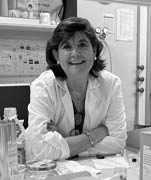
Ana Martinez
CIB (CSIC)
Dr. Ana Martinez is Research Professor at the Biological Research Center (CIB) of Spanish National Council for Research (CSIC). Her interest is focused on neurodegenerative disorders, leading numerous research projects on the medicinal chemistry and rational drug design of new drugs for Alzheimer's and Parkinson's disease, amyotrophic lateral sclerosis, spinal cord trauma and multiple sclerosis. Her research is in close contact with biopharmaceutical companies for technology transfer. Since February 2002 till January 2008, she was R&D Director of NeuroPharma, after called NOSCIRA. During this period, two of her research projects reached clinical trials as disease modifying agents for Alzheimer's disease. In 2008, she returned to her academic laboratory where several projects have been developed in a private-public environment. She is author of more than a three hundred scientific publications, more than fourty active patents in the field and editor of several books. She acts as scientific advisory board for several SMEs in the biotech field and recently she is founder of ANKAR PHARMA, which goal is full the gap between basic drug discovery research and clinical trials for neurodegenerative diseases.
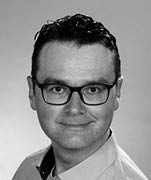
Andreas Blum
Merck KGaA
Andreas Blum is an Associate Director in Medicinal Chemistry at Merck KGaA in Darmstadt (Germany). He graduated from the Philipps-University Marburg (Germany) in 2007 obtaining his Ph.D. Medicinal Chemistry, followed by a postdoc at Imperial College in London with Prof. Barrett. In 2009, he joined Boehringer Ingelheim in Biberach (Germany) as a lab leader in Medicinal Chemistry, where he worked as team member and project leader for several research projects in cardio-metabolics. At the end of 2016, he moved to Merck KGaA changing his focus to oncology research and was appointed to group leader last year.

Anne Valade
UCB BioPharma
Anne Valade is a Director in Medicinal Chemistry at UCB BioPharma in Braine-L’Alleud (Belgium). She graduated from the University of Paris XI (Orsay, France) and obtained her Ph.D. in Organic Chemistry in 2004 with Professor Beau. She joined the UCB Medicinal Chemistry team in 2006 as a Senior Scientist, after a postdoctoral fellowship with Prof. Hodgson at the University of Oxford. At UCB, she has been involved in multiple projects targeting central nervous system (CNS) diseases. She contributed to the identification of several preclinical candidates, including the first clinical SV2A PET ligand, for which she received the EFMC runner-up Prize for a Young Medicinal Chemist in 2016.
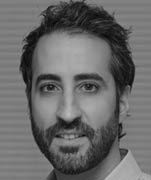
Antonio Ricci
Roche
Antonio Ricci is a Principal Scientist and Group Leader in the Medicinal Chemistry department at F. Hoffmann- La Roche in Basel (CH). He joined the Medicinal Chemistry department in 2003 as research associate and moved through different ranks up to the position of a research scientist. Antonio is a passionate drug hunter with major contributions to late stage projects, e.g. the discovery of Basimglurant, a promising novel medicine for psychiatric diseases. His recent research is focusing on oncology, in particular cancer cell targeted therapies.

Bryan Chan
Genentech
Bryan is a Principal Scientist in the Discovery Chemistry department at Genentech (US). He obtained his M.Sc. in organic chemistry at the University of British Columbia (Canada). Since joining Genentech in 2009, Bryan has been involved in multiple kinase programs such as LRRK2 (for neurodegenerative diseases), EGFR (for oncology) and HPK1 (for cancer immunology). He is currently supporting small molecule drug discovery programs as a project team or chemistry team leader. For his contributions to the field of organic and medicinal chemistry, Bryan was a recipient of the 2022 American Chemical Society Technical Achievements Award in Organic Chemistry.
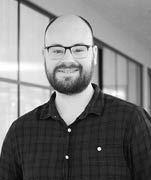
Chris Radoux
Exscientia
Generative AI design has established itself as a tool to efficiently perform drug discovery. Two major questions still remain. One, how broadly can AI design methods be applied across target space. Two, how complex can the desired profile of AI designed molecules be. Recent work has shown the use of AI design for targets using 2D data driven approaches and for relatively simple property optimisation. In this work we show how AI can be applied and scaled using 3D structures to deliver complex property profiles. First, we show that our target tractability platform can scale to proteome wide analysis in a few hours and for less than the cost of an iPhone. We show the analysis on the human kinome - and highlight the need for improved structural models including flexibility. Second, we demonstrate that this system, coupled with our generative design capability, can scalably produce highly-potent (<100 nM) and novel starting points, which we show across 3 kinase targets. We show areas of the approach that could be further enhanced such as for protein structure quality and highlight new avenues for developing improved selectivity in molecules. Finally, we showcase our capability on the design of our clinical candidate for CDK7, GTAEXS617, designed in <12 months and in 136 experimental compounds. We talk through the design of the molecule and the differentiated biological response to other CDK7 inhibitors.
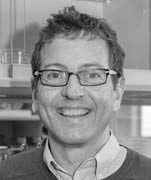
Daniel Lietha
CIB-CSIC
Daniel Lietha is a structural biologist interested in kinase structure and regulation. He did his postdoctoral work with Prof. M.J. Eck at the Dana-Faber Cancer Institute, Harvard Medical School (USA). In 2009 he started his independent research, first at the Spanish National Cancer Research Centre (CNIO, Madrid) and since 2019 at the Margarita Salas Center for Biological Research (CIB-CSIC, Madrid). His research focuses on understanding the structure and mechanisms of signalling complexes involved in cell migration and cancer invasion. He further utilizes structural and mechanistic insights for allosteric drug discovery aiming to target native regulatory sites with high specificity.

Rehan Aqil
Domainex
Rehan Aqil is a Principal Scientist in Medicinal Chemistry at Domainex. He graduated from King’s College London and obtained his PhD in organic chemistry with Professor William B. Motherwell at University College London (2002). Rehan has worked on a number of kinase programmes over his career including IKKε/TBK1 dual inhibitors for oncology and was the lead chemist in developing MAP4K4 kinase inhibitors for cardioprotection, following myocardial infarction. In addition, he led the back-up series team on the Tankyrase inhibitor programme which was successfully licensed to Merck Soreno, by Domainex’s client, ICR. His recent work has focused on covalent inhibitors targeting cardiac fibrosis.

Ryan Moslin
Bristol Myers Squibb
Ryan joined Bristol Myers Squibb (BMS) in 2010 where he was given an ambitious side project looking at inhibiting TYK2 via the pseudokinase by his supervisor and eventual mentor David Weinstein. Said project culminated in their invention of the first ever clinical agent to target a pseudokinase domain (deucravacitinib). For this invention Ryan and the TYK2 pseudokinase chemistry team were recognized with the 2019 Thomas A. Edison Patent award. Ryan was also recognized as a 2020 ACS Young (Industrial) Investigator and has served as a researcher advocate for PhRMA (GoBoldly) and as a patient (psoriasis) advocate within BMS.

Sam Butterworth
University of Manchester
Sam joined the University of Manchester as a Senior Lecturer in Medicinal Chemistry in November 2016. Prior to this he worked at the University of Birmingham from 2013 and at AstraZeneca from 2005-2013. During this time he has been accountable for chemistry strategy and delivery for all phases of drug discovery projects from target review and hit generation, through to lead optimisation and pre-clinical development. His work at AstraZeneca led to the development of a targeted anti-cancer agent osimertinib that was approved by the FDA in November 2015, and along with his colleagues Sam has been recognised for this work through the 2017 RSC Malcolm Campbell Award and the 2018 ACS Heroes of Chemistry award.

Simon Peace
GlaxoSmithkline
Simon has completed his Degree & PhD at the University of Sheffield and then joined GlaxoWellcome in 1998. He is now Scientific Director (Medicinal Chemistry) at GlaxoSmithkline, Stevenage with roles including project leader and subject matter expert. He has over 18 years experience working with SCI, organising events and helping to develop the scientific community.
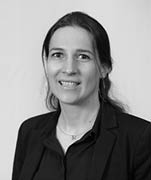
Sophie Bertrand
GSK
Sophie is a team leader in the Medicinal Chemistry department in Stevenage (UK). She joined GSK in 2006, following her graduation from CPE Lyon in France with a Masters degree in Chemical Sciences and Engineering. In 2011, she entered the GSK/Strathclyde PhD programme under the supervision of Dr Craig Jamieson, from which she graduated in 2015. For the past 17 years, Sophie has worked on a variety of targets across multiple disease areas, from fragment-based drug discovery approaches all the way to late lead optimisation. She led the PI4KB medicinal chemistry team that delivered a first in class inhaled clinical candidate for the prevention of rhinoviral-driven exacerbations in respiratory diseases.
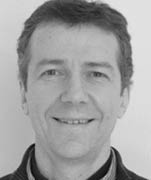
William McCoull
AstraZeneca
Bill received his D.Phil in organic chemistry working in lab of Prof. Sir Jack Baldwin at the University of Oxford in 1996. After postdoctoral research with Prof. Jeff Winkler and Prof. Franklin Davis in Philadelphia he returned to the UK and joined AstraZeneca in 2000. He worked first at the Alderley Park, Macclesfield site before moving to Cambridge, UK in 2015 where he is currently a Director in Oncology chemistry. Bill has worked in several therapy areas, across various drug modalities in all stages of drug discovery and is the author of over than 30 patents and publications.
Programme
Tuesday 9 May 2023
- 09:30
- Registration and refreshments
- 10:00
- Opening remarks
Chairperson: Ray Finlay, AstraZeneca
- 10:05
- Keynote presentation: Protein editing using small molecules
Amit Choudhary, Broad Institute, USA - 10:45
- Structure-based lead optimization of orally bioavailable HPK1 inhibitors
Bryan Chan, Genentech, USA - 11:15
- Refreshments, exhibition and posters
Chairperson: John Cumming, F Hoffmann-La Roche
- 11:45
- Discovery of Novel Allosteric EGFR L858R Inhibitors for the Treatment of Non-Small-Cell Lung Cancer
Antonio Ricci, Roche, Switzerland - 12:20
- Using generative AI for drug discovery: Scalable 3D AI target discovery and design of potent and selective kinase inhibitors
Chris Radoux, Exscientia, UK - 12:55
- Lunch, exhibition and posters
Chairperson: Rebecca Paul, Isomorphic Labs
- 14:00
- Brain penetrant protein kinase inhibitors as potent modulators of TDP-43: a new hope for ALS therapy?
Ana Martinez, CSIC, Spain - 14:35
- Structure-based optimisation of CNS penetrant MSK-1 inhibitors
Anne Valade, UCB, Belgium - 15:10
- Short talks:
- A Covalent Cure for Malaria: Development of a CKI of PfCLK3
Skye Brettell, Glasgow University - Discovery of Venus Kinase Receptor 2 (VKR2) Inhibitors for Treatment of Schistosomiasis
Efthymios Gavriil, Imperial College London - 15:30
- Refreshments, exhibition and posters
Chairperson: Stuart Cameron, Concept Life Science
- 16:00
- Inhibition of TYK2 via the pseudokinase: the discovery of deucravacitinib
Ryan Moslin, Bristol-Myers Squibb, USA (Remote Presentation) - 16:35
- The importance of conformation in the structure-based design of selective CaMK1 inhibitors
Sam Butterworth, University of Manchester, UK (Remote Presentation) - 17:10
- Development of MAP4K4 inhibitors for the suppression of cardiac muscle cell death
Nick Martin, Domainex, UK - 17:45
- Network reception, exhibition and posters
Wednesday 10 May 2023
Chairperson: Pascal Savy, Isomorphic Labs
- 09:00
- Rational practical approaches for the efficient identification and optimisation of inhaled kinase inhibitors
Simon Peace, GlaxoSmithkline, UK - 09:35
- Discovery and optimisation of potent, slow-dissociating inhaled PI4KB inhibitors
Sophie Bertrand, GSK, UK - 10:10
- Refreshments, exhibition and posters
Chairperson: Asier Unciti-Broceta, University of Edinburgh
- 10:45
- Focal adhesion kinase: mechanistic insights as guide for allosteric targeting
Daniel Lietha, CIB-CSIC, Spain - 11:20
- The discovery of new inhibitors of cKIT for the treatment of GIST
Andreas Blum, Merck KGaA, Germany - 11:55
- Short talks:
- Validation and optimization of the next-generation cancer therapeutics by targeting Protein Kinase D2
Olivia Appelmans, KU Leuven - Structural optimization of Nek6 inhibitors: computer-aided design, synthesis, and in vitro activity
Maria Cristina De Rosa, Institute of Chemical Sciences and Technologies "Giulio Natta" (SCITEC) - CNR, Italy - KLIFS: capturing three decades of kinase inhibitor design
Albert Kooistra, University of Copenhagen - 12:30
- Lunch, exhibition and posters
Chairperson: Rachel Pearce, Domainex
- 13:40
- Total inhibition of SRC kinase activity and scaffolding properties by a Type 1.5 inhibitor
Asier Unciti-Broceta, University of Edinburgh - 14:15
- Optimisation of Mer/Axl kinase inhibitors for immuno-oncology
William McCoull, AstraZeneca, UK - 14:50
- Closing remarks
- 15:00
- Close
Venue and Contact
SCI
14/15 Belgrave Square
London
SW1X 8PS
Conference Team
Tel: +44 (0)20 7598 1561
Email: conferences@soci.org
Fees
| Before early bird - ends 28 March 2023 SCI/RSC* Member - £295 Non-member - £370 SCI/RSC** Student member - £135 |
| After early bird SCI/RSC* Member - £345 Non-member - £420 SCI/RSC** Student member - £185 |
*RSC members should enter the Event discount code EJRFCHEM216 and select “Guest Member” under the section Member type. Delegates will be contacted for their RSC membership number after successful registration.
**RSC student members should enter the Event discount code EJRFCHEM216S and select “Guest Member” under the section Member type. Delegates will be contacted for their RSC membership number after successful registration.
All registrations will automatically receive a confirmation within 24 hours of registering for the event. Should you not receive written confirmation of your booking, please email conferences@soci.org.
Become an SCI Member and save on this and future events
See Membership OptionsSign up as an Event Member to join this event. SCI Full or Student Members receive discounts on event registrations
Booking Process/Deadlines
SCI’s Fine Chemicals Group and RSC’s Biological and Medicinal Chemistry Sector are committed to promoting diversity and equality in the chemical sciences. We aim to identify high quality speakers for all our conferences with inclusivity of gender and ethnicity. Attendees from all backgrounds and ages are welcome.
Sponsors
Exhibitors
Organising committee
Stuart Cameron, Concept Life Sciences
John Cumming, F Hoffmann-La Roche
Ray Finlay, AstraZeneca
Pascal Savy, Isomorphic Labs
Asier Unciti-Broceta, University of Edinburgh







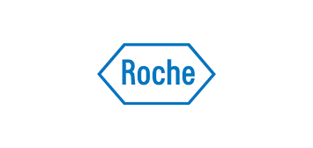


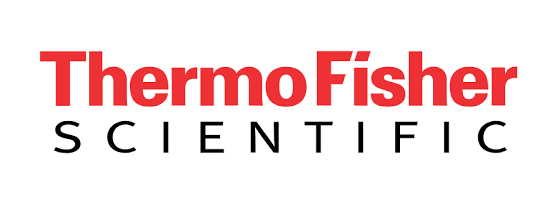
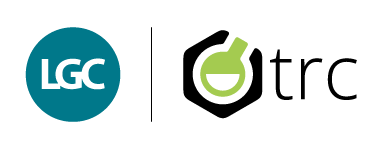
.ashx?h=960&w=1501&hash=6589C2EE67CF3B093813CD4C07FC17C0)
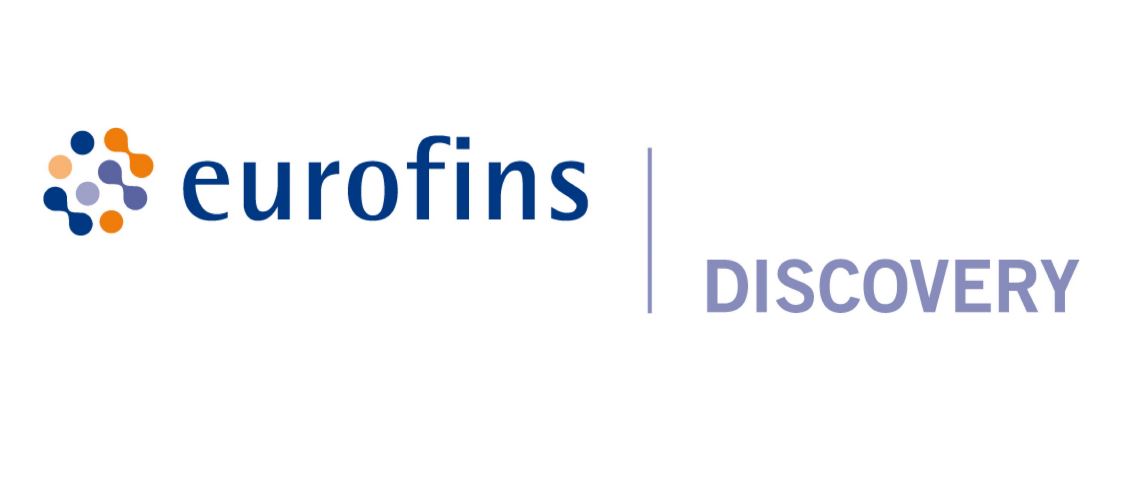

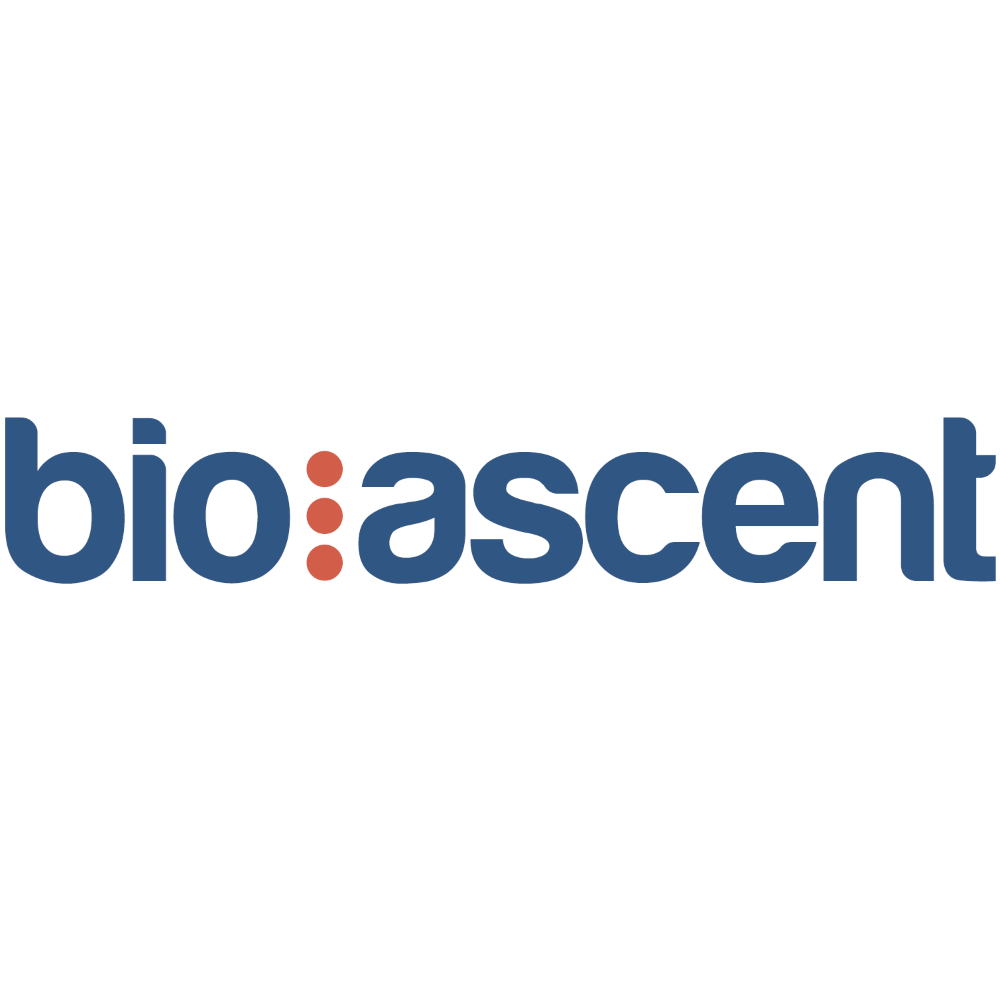

.ashx?h=592&w=1183&hash=1FFC22419E8EB5D49909F2F0FD717A55)
